Understanding SEO The Easy Way!
Our Super Hero, SEO MAN, explains SEO in 60 seconds or less
SEO can be confusing, so to help people understand SEO quickly, we created SEO Man, our search engine optimisation Super Hero. Get ready to understand SEO in under 60 seconds.
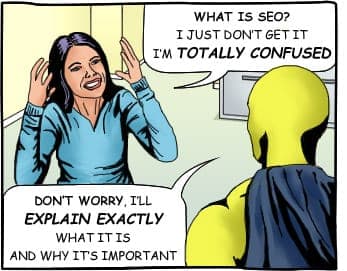
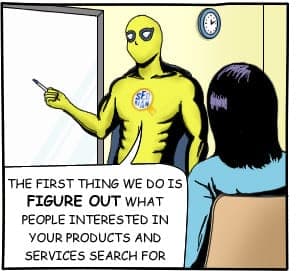
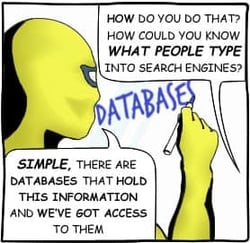

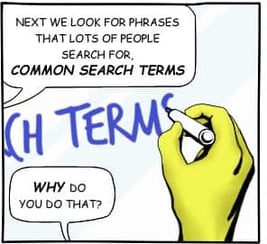

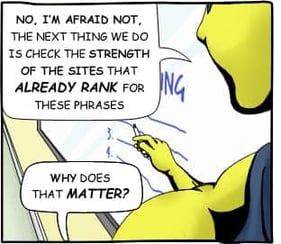
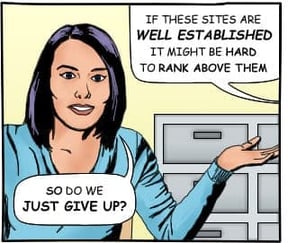


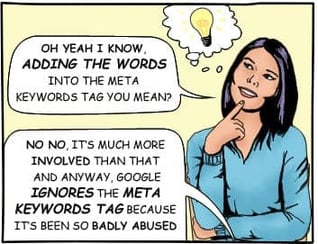
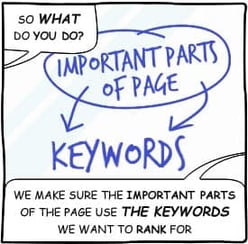
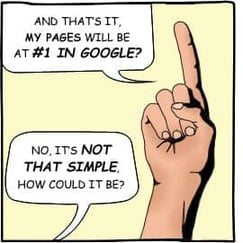

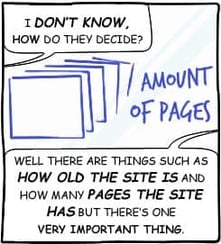

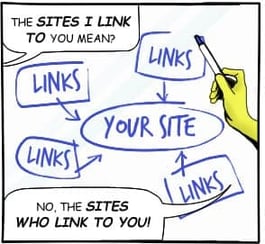
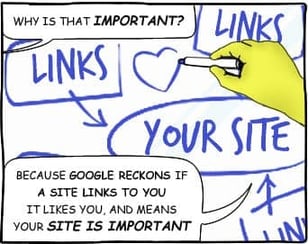

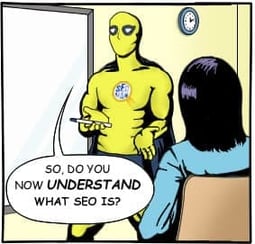

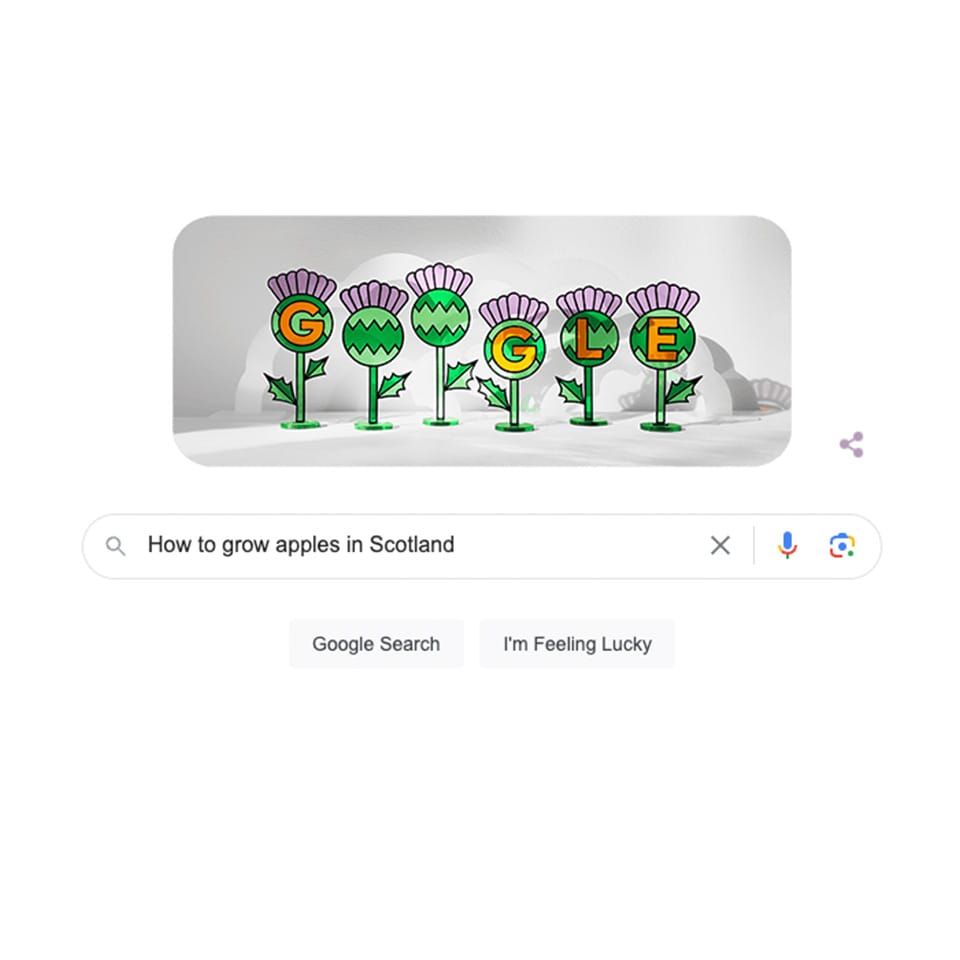

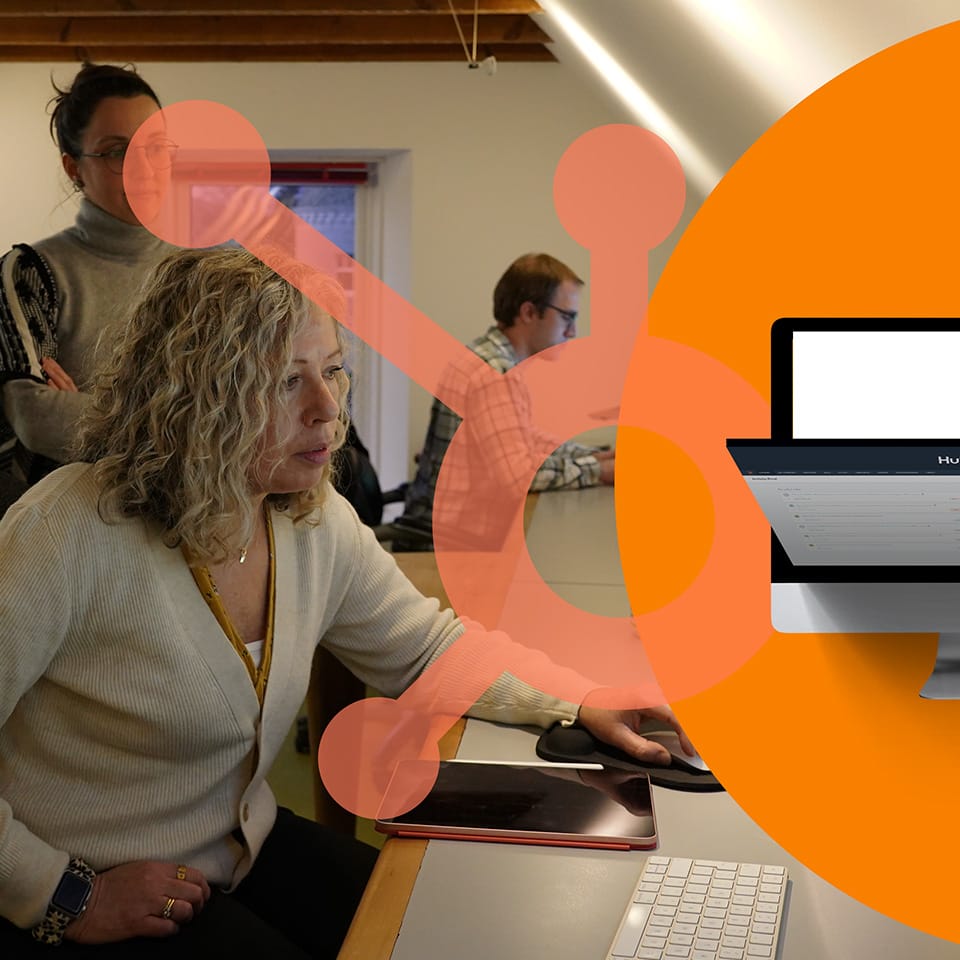
SEO Explained
The key to understanding SEO and improving your website's organic search results is appreciating what Google tries to do when someone types in a search query. You need to know how search engines work. Understanding this will demystify SEO and ensure your SEO strategy is informed and fit for purpose. Even if you hire an SEO specialist, understanding how search works will be hugely beneficial and give you the confidence to know you've hired the right person.
Here's an explanation.
Let's say someone types the following, "how to grow apples in Scotland", into the empty box in the middle of the page on Google, Bing, or any other search engine.
First, Google looks through its index for web pages, PDF documents, or videos about growing apples in Scotland. Google's index is like a library's categorised index for all its books.
At this stage, Google's looking for the most relevant pages that talk about apples, how to grow them and specifically, how to grow them in Scotland.
Understanding that Google indexes web pages to quickly access the information people are searching for is very important. Imagine if there was no index. Instead, Google looked through all the pages it knew about, looking for the words apple, grow and Scotland every time that search was carried out. It just wouldn't work; it would take forever.
So the first lesson to learn if you want to understand SEO is to ensure your web pages are built in a way that makes it easy for Google to index them.
Making your web pages search engine friendly and indexable is easy. This is because search engines look at several specific web page parts when they visit them. All the mainstream website management systems like WordPress or HubSpot help you to do this; it's very straightforward.
We'll explain each of the following in detail, but to add your pages to their index, search engines look at your web page title element, meta description, headers and, most importantly, your content.
Page Title Element
The page title element isn't shown on the web page, but it is used as the linking text, the bit you click, on a search results page. It's also displayed in the top bar of your web browser.
Because of how the title element is used, many people, understandably, find it confusing, but if you think of it as the title of a book, you won't go far wrong.
A web page's title element is the most important way to let search engines know what your web page is about, just like the title of a book. Unfortunately, a common mistake is letting the software you use to build your website decide what to use as the page's title element, don't do that.
For example, it's still common today to see website home pages use the word "Home" as their title element. Imagine how hard it is for a search engine to understand a web page if the most essential piece of information simply says "Home". It would be like a book title being "Book" or a road sign saying "Town 24 Miles" instead of "London 24 Miles".
Every page on your website should have a well-thought-out and crafted page title element. It's your opportunity to let the search engines know what your page is about. In addition, it lets the search engines know when they should include your page in a search result.
Furthermore, a web page title element should contain the most important search terms you want the page to rank for. So in our 'apples' example, a good page title element would be "How To Grow Apples In Scotland, A Step By Step Guide". This title element contains the important search term "how to grow apples in Scotland" and tells people what they will get, a step-by-step guide. So if you were looking for help growing apples in Scotland and saw this in a search result, you'd almost certainly click it.
However, simply including search terms in the title won't guarantee a number one search ranking. So let's continue our journey towards understanding how SEO works by looking at meta descriptions.

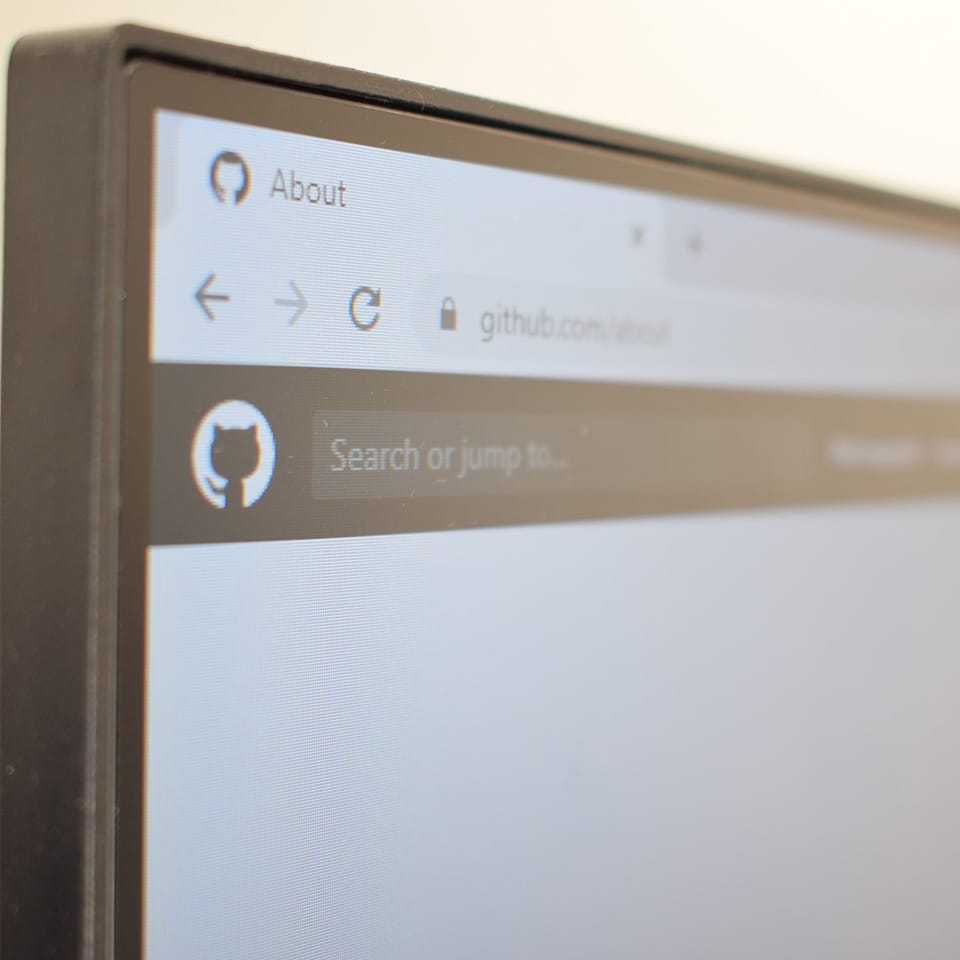
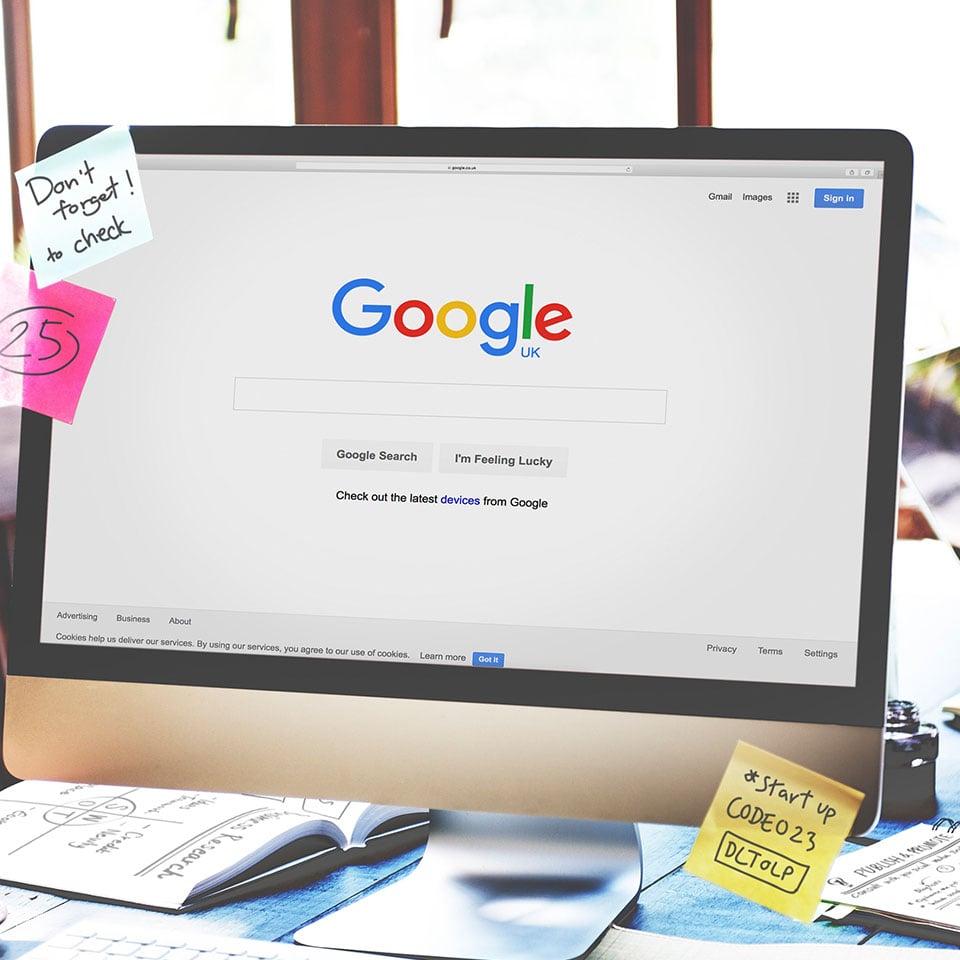


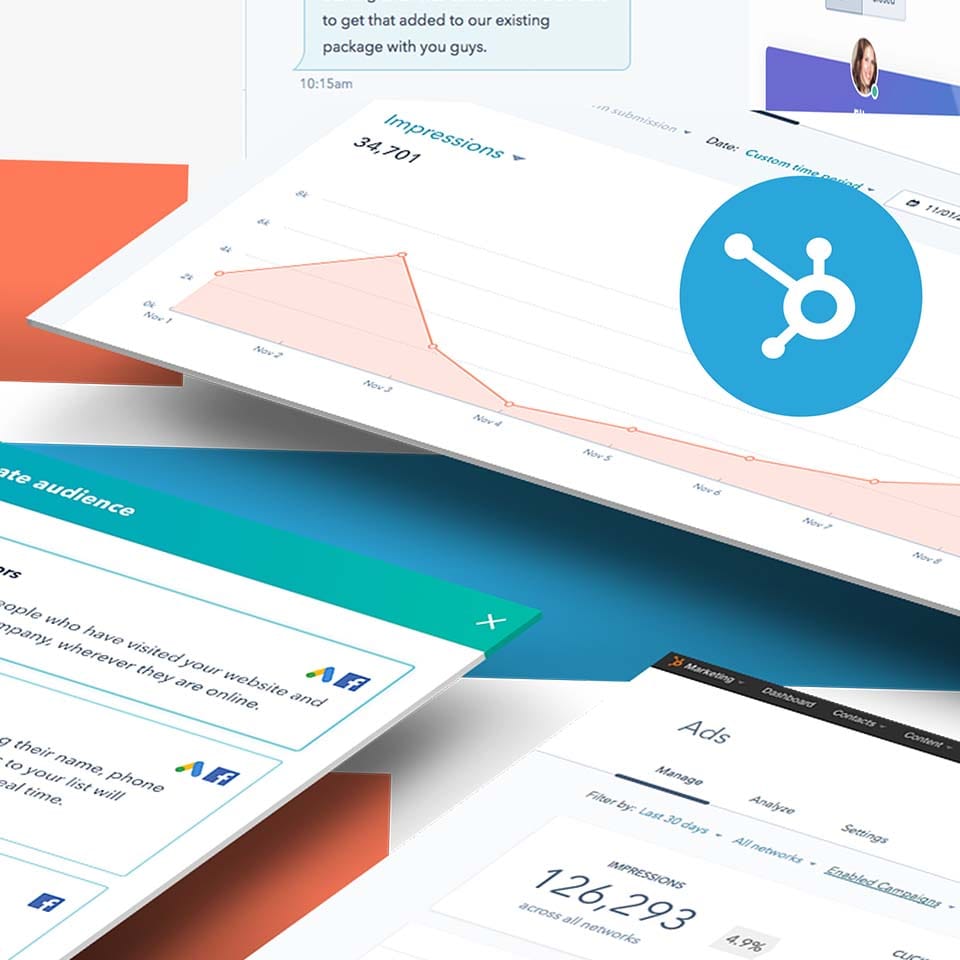
Meta Descriptions
People get confused about meta descriptions, but they are straightforward to understand. Like the title element, a meta description doesn't appear on the web page itself. Instead, it helps search engines understand what a page is about. It's a bit like a condensed version of the web page. A couple of sentences explaining what the web page content is about. It's information about information. It might sound complicated but think of it this way.
When browsing in a book shop, and a book catches your eye, you might look at the back cover. This is because the back cover often gives a short sharp overview of the book's contents. That's what meta descriptions do for web pages. They provide a quick overview and are there to help search engines.
The words in the meta description are commonly used on the search engine results page under the link text, but not always. For example, suppose Google doesn't think the meta description accurately describes the page's content. In that case, some content from the page will be used instead.
The problem with this is a well-written meta can encourage people to click through to your website, just like a well-written book precis might promote a sale. So, write great meta descriptions that match the page content, and you'll benefit from more clicks from search.
As with the title element, mainstream web management systems, often called content management systems or CMSs, make creating meta descriptions and putting them in the right place easy.
One thing to note. Although your page title element is a ranking factor, a significant ranking factor, meta descriptions are not. Therefore, most search engines only trust your actual content when looking for ranking signals. So let's continue our journey toward a better understanding of SEO.
Headers & Content
The content of your web page, the words people read when they look at it, is also what the search engines look at or process. Search engines are trying to understand your content, so they know when to include it in a search query. In our example, the search query is "how to grow apples in Scotland".
When writing content, you should consider the following.
- Write for humans, not search engines.
- Research the words and phrases your audience types into the search engines.
- Include the words and phrases they type into the search engines in your content.
- Include the most essential words and phrases in your headers.
So What Are Headers?
Unless you're James Joyce, you don't simply write pages of words when you write a document. Instead, commonly documents are broken into sections and given headlines or headers.
On a webpage, headers are ordered in importance, with H1 headers being the most important and H6 being the least.
Best practice suggests web pages should only have one H1 header, but you can have several H2, H3, H4, H5 and H6 headers. Your H1 heading should contain your page's main topic.
Before you panic and wonder how to assign the correct headers, don't. Your CMS text editor, which looks like a mini version of your word processor, takes care of it for you. All you need to do is highlight some text and apply the setting, usually from a drop-down menu. It's a piece of cake.
Assuming you've done your research and developed an understanding of the words and phrases your customers are typing into the search engines, your content is the most important factor in making sure they find you.
All your energy needs to be put into ensuring your content is the best it can be; as the song goes, "simply the best, better than all the rest". But what does that actually mean, and why is it important.
The best content for any given search query is the content that people find the most useful. Your job is to create content that people find helpful, but you also need to ensure your content will be seen by the search engines as the best content, which might mean ticking boxes.
For example, if for a given search, the highest ranking content is extensive in length, perhaps 2000 or 3000 words long, it's unlikely that a piece of content 300 words long, no matter how good it is, will perform better in search. Size matters.





How Much Content Is Enough?
As part of your research, you should review the type of content that ranks for the search phrases you want to rank for. To outrank them, your content needs to be better in every way, which usually means it needs to go deeper than the existing content. It needs to provide more detail, be more extensive, covering all the bases.
The only way lighter content will outrank long-form content is if it has a better link profile; that is to say, many other web pages link to it. Here's why that's important.
Why Are Links Important
When the content on one web page links to content on another, it's kind of endorsing it. The search engines know this and treat links as votes of confidence. In fact, most, if not all, search engines use the democratic nature of links as a trust signal, and links are the most critical ranking factor. This includes internal linking within your own website as well as getting high quality external links.
It's common and unfair, but a page with poor content but a great link profile can outrank a page of amazing content with no links.
However, it's not unusual for pages with few links to rank well if most of the other similar pages don't have links either. So, as with writing your content, you need to research the link profiles of the pages you want to outrank to establish what it's going to take to beat them.
Links and link building is a confusing area of SEO. Getting other website owners to link to your web pages is hard. For that reason, an industry that helps website owners improve their rankings by getting links has grown.
If you choose to acquire links in this way, tread carefully. Cheap links won't work and may hurt your rankings, and the search engines may decide to penalise your website if they detect blatant link fraud.
We could say a lot more about links but instead would advise you to seek out expert help. Although search engines warn you not to buy links in most competitive niches, the web pages outranking you are buying links. What's a girl to do?

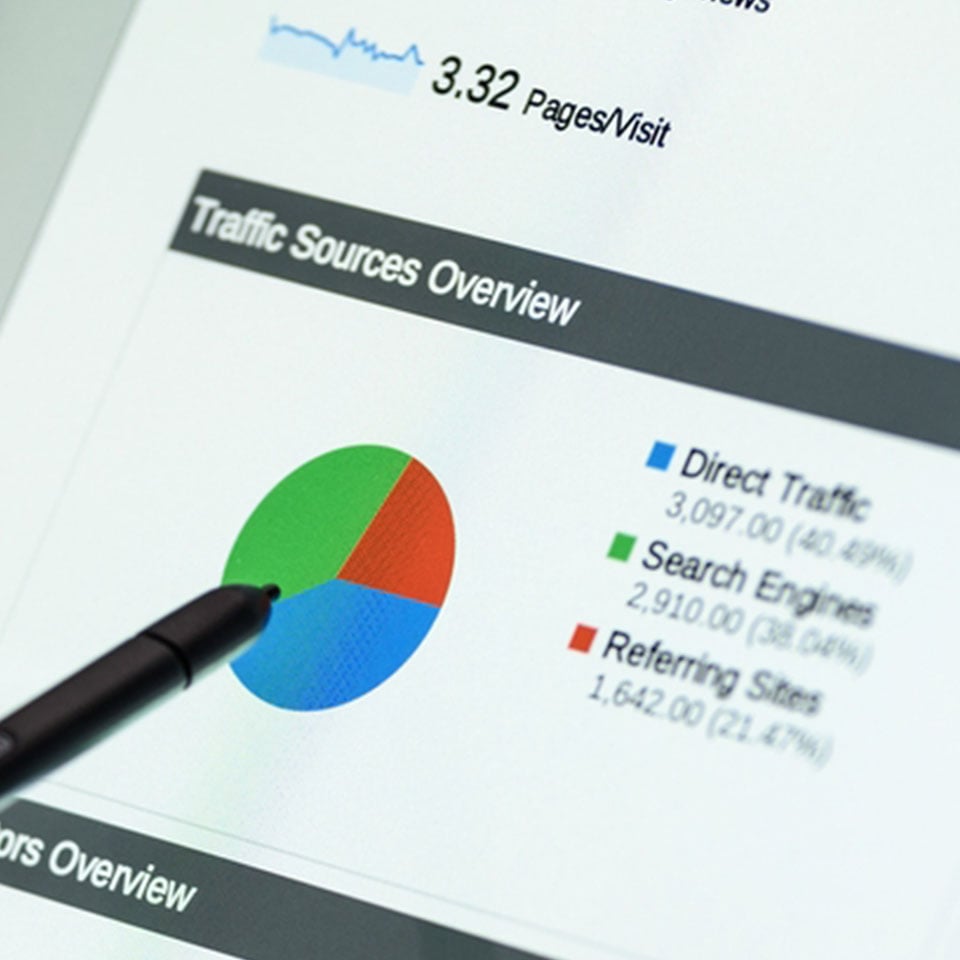
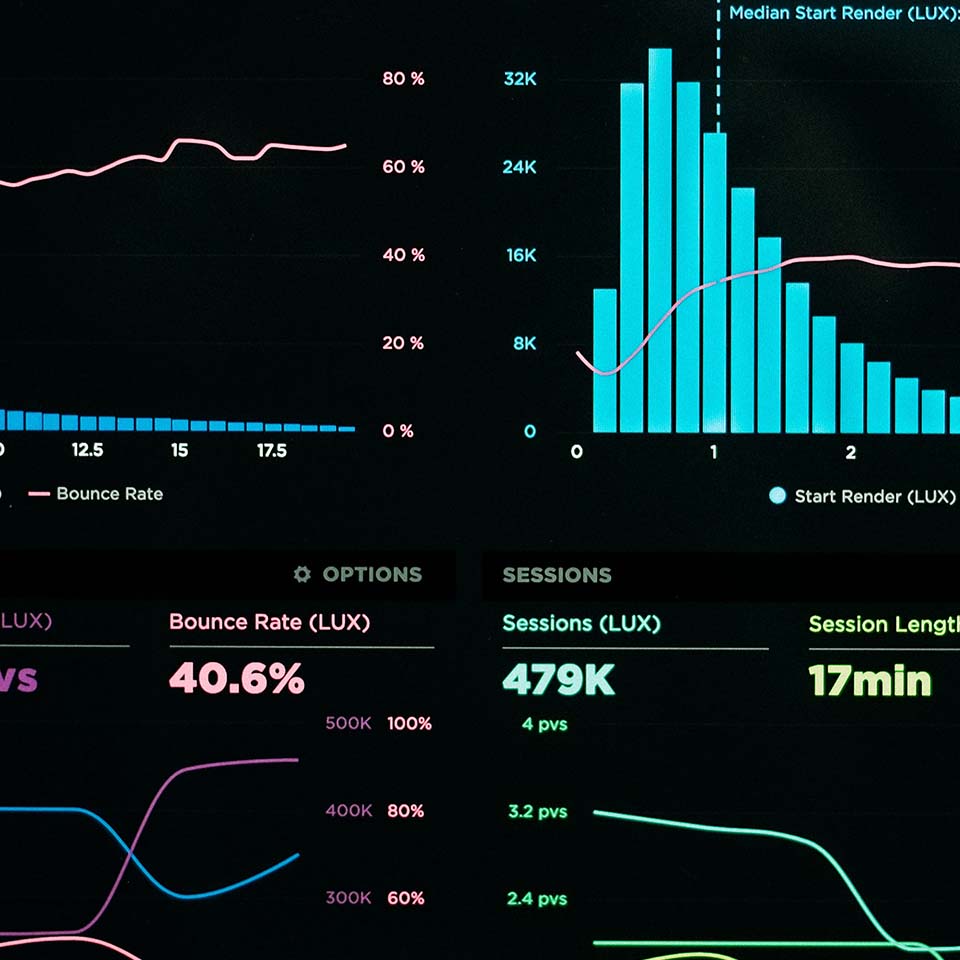


In Conclusion
Understanding SEO is a crucial business skill because SEO has the potential to help you grow your organisation in ways no other form of promotion can. Without good SEO you have to reply on paid search.
That's because every day, millions of people like you type search queries into Google and other search engines looking for products, services and solutions to problems.
Investing a little time in understanding SEO, like reading this article, puts you ahead of your competitors and guarantees you'll hire the right SEO specialist to help you accelerate your business growth.
Lastly, if you like podcasts, our popular digital marketing podcast, From The Coalface, called Ever Googled The Question What Is SEO? is an entertaining and educational listen.